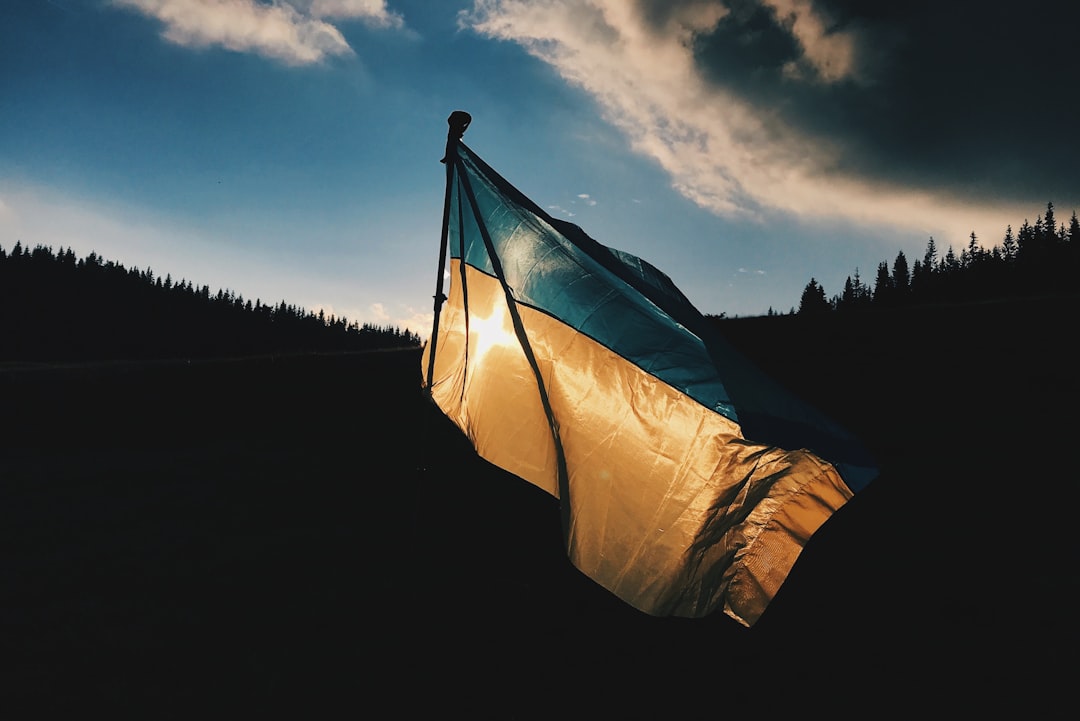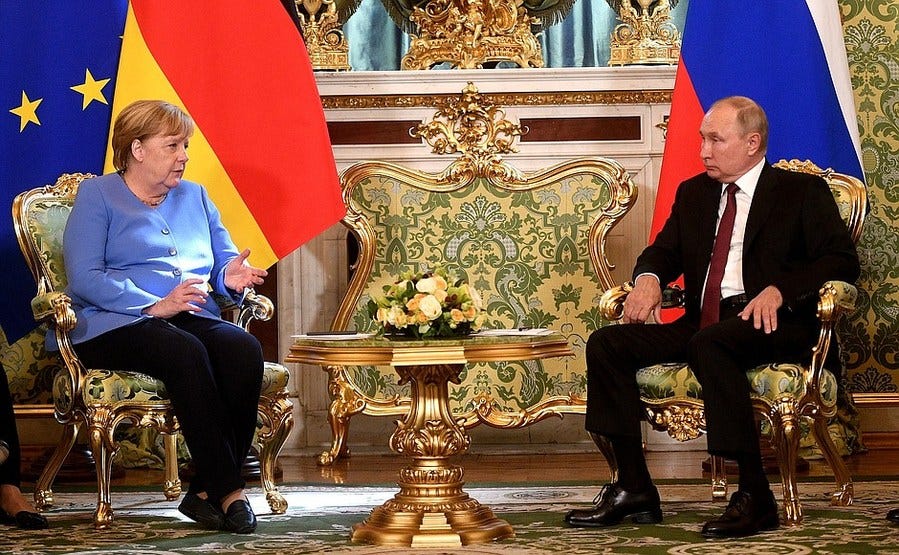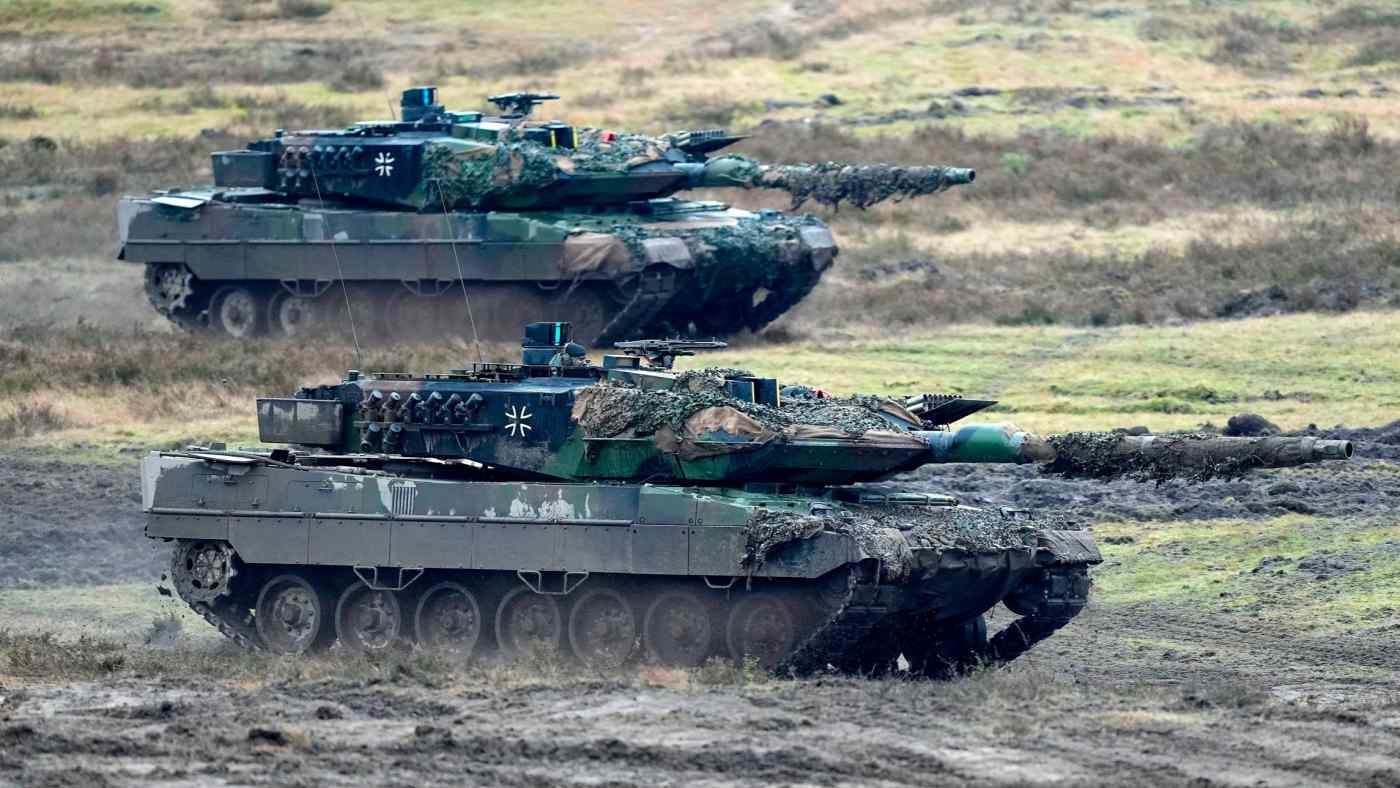
While it would be inaccurate to describe the past six months of the war in Ukraine as devolving into a total stalemate, what is undeniable is that the front lines have become very much fixed. It would be accurate though, to describe the present moment as one of abeyance. Russia's winter offensive, its attempt to seize all of the Donbas, has demonstrably failed. President Vladimir Putin and Wagner chief Yevgeny Prigozhin have exchanged thousands of Russian lives for a few worthless square kilometres around Bakhmut, and whatever the final outcome there, have created another Ukrainian legend of heroic defence. Yet one of the main causes of this relative stasis does not find its origin in the key decision-making centres in either Kyiv or Moscow, but rather Berlin.
The decisive moment of both 2023, and likely the entire war, will be Ukraine's coming major counteroffensive operation, of which only a literal handful of people are involved in the planning of (which hasn't stopped experts, both credentialed and armchair, from prognosticating on its timing and location). Most of the world stands with Ukraine, as the international community can see brave people sacrificing so much to fight for the freedom of their homeland. However time and money are not infinite, and no matter how unjust it might be, the truth is global support for maintaining the current supply of arms to Kyiv is contingent on there being a prospect of victory. Were this to become a true stalemate then the current levels of material and financial support would, sooner or later, be declared unsustainable, and there would be immense pressure on President Volodymyr Zelenskyy to allow peace negotiations to begin.
However the reason that this counteroffensive always seems to be just over the horizon is the glacial pace of promised weapons actually being delivered to Ukraine, and even before that the tortured process of extracting these promises. And there is no better illustration of this than taking an overview of the (slowly) evolving German government position when it comes to Russia and then to Ukraine's defence against Russian aggression. By examining what European “leadership” in the face of the greatest security threat to Europe since the end of the Cold War looks like, we can see how historical circumstances as well as a blinkered view of recent history has distorted the geopolitical realities of the present. And what has led a major arms manufacturer and exporter to be such a laggard in matching its stated intentions and promises with metal.
After World War Two Germany was, obviously, no longer a military superpower. Divided in twain by the Iron Curtain, in 1949 the American, British and French occupied zones of the former Third Reich became West Germany just as the Soviet sector became East Germany, and in 1955, when the Allied occupation officially ended, West Germany became a member of NATO. However this new state's armed forced were more political cover, designed to legitimise the country, while the United States remained the major military power in Europe throughout the Cold War. As Lord Ismay, the first Secretary of NATO put it, the new organisation was designed to “keep the Soviet Union out, the Americans in, and the Germans down.” And this position of American leadership and German passivity continues, with the US under president Joe Biden taking the lead in arming Ukraine, with the venue for meetings to discuss western military aid the Ramstein Air Base, constructed on Germany territory but by the United States Air Force in the late 1940s for its own use.
But then with Germany peacefully reunited in 1990 and the Cold War a fading memory for forward-looking, some would say wilfully blind, policymakers, the chief business of the German people, to adopt former US President Calvin Coolidge's maxim, became business. And it seemed nothing would get in the way of that. Not even a revanchist Russia under Putin post-2000. In one of the most important statements too few of the right people paid attention to, in an April 2005 speech Putin declared the collapse of the Soviet Union the “biggest geopolitical catastrophe of the 20th Century”. This was not the voice of a new Russia looking to become part of the global community, this was a revanchist Kremlin seething over past losses and seeking to rectify what it saw as a historical injustice. But acknowledging what this could mean for the former Eastern Bloc would have been, amongst other things, bad for business, so foreign leaders decided to ignore it. Just as they ignored the fact that buying Russian oil and gas was not spreading Western-style liberalism Eastwards, but rather funding Putin’s expansionist authoritarianism.
And nowhere was this naked imperialist ambition more studiously ignored than in Berlin. Germany's export-driven, low debt economy handily weathered the Global Financial and European sovereign debt crises, despite the gnashing of teeth over austerity politics from abroad. As France lurched from Nicolas Sarkozy to François Hollande to Emmanuel Macron, and as the United Kingdom voted against remaining as a European power and exited the EU in a debacle that made the Afghanistan withdrawal seem a triumph of Dunkirk proportions, German Chancellor Angela Merkel endured as the de facto leader of Europe. Indeed, the closest she came to falling was in 2015/16, when Putin and Syrian president Bashar al-Assad weaponised migration to weaken Europe with an induced refugee crisis, while the Kremlin continue to illicitly funnel money to the growing continental far-right.
21st Century Germany has been described as an economic giant but a political dwarf. The world's fourth largest economy is also soft power titan; in 2013 being voted most popular country in a BBC poll. And this is exactly how Germany sees itself: a nation of hard workers and a model international citizen. But after Russia's invasion of Ukraine in February 2022 this narrative, decades in the making (with help from leaders of all political parties), had its core elements challenged. This is because Berlin's relationship with Moscow, along with this constructed self-image as a peaceful economic power, could not survive Putin's land war. Policymakers and generals seem to have forgotten what their countryman Otto von Bismark famously declared in 1862: “Not through speeches and majority decisions will the great questions of the day be decided...but by iron and blood.” If Ukraine and Europe is to be saved from Russian aggression, German iron will be needed, peace will not come through superior economic engagement.
Recent analysis has focused on how Putin got away with his 2008 invasion and occupation of parts of Georgia unpunished; this operation cleverly timed to occur when the George W. Bush White House was occupied with an unfolding domestic and then global economic crisis in an election year. Next, in 2014, after Barack Obama's foolish “red line” in Syria that turned out to actually out to be a green light for Russian intervention (and profiteering, because of course), Putin felt emboldened to illegally annexe Crimea and invade and occupy parts of Eastern Ukraine. After which Merkel agreed with Putin to begin construction on the Nord Stream 2 gas pipeline, thus yoking Germany and Europe's energy needs to the whims of Russia's state controlled suppliers. Then after US President Joe Biden inherited Donald Trump's rushed Afghanistan withdrawal, the calculation was likely made that America was weakened by this humiliation. The probable final factor in Putin's timing was national elections, in December 2021 in Germany, and in May 2022 in France. He might have bet France would be distracted and that Merkel's successor would be weak and pliable, depending on Russian energy to heat the homes of voters in the middle of winter.
When examining the post-WW2 history of Germany, one finds a country that for reasons of both historical guilt and financial expediency became accustomed to outsourcing its defence to the United States. Berlin has focused on peaceful trade, telling itself and the world that the way to deal with Russia was dialogue and integration into European and global markets; buying Russian oil and gas and selling Mercedes and BMWs to Russian oligarchs. Angela Merkel's 16 years as chancellor, it turns out, was a period of abdication rather than genuine leadership. Under her governments the Kremlin was never seriously punished for its imperialist war-mongering and state-sponsored terrorism (with incidents such as the MH17 shoot down), but instead rewarded with infrastructure deals such as Nord Stream 2 and an ongoing seat at the international table.
The crucial task for Germany is to match its economic clout with commensurate leadership in this decisive moment. As a key enabler of Russia over the past few decades, the responsibility is now to stand up for the western and European values it says it promotes. WW2 was a long time ago, only in the fever swamps of Kremlin propaganda would a more robust German defence posture appear like an echo of Nazism, yet Berlin seems hesitant. In the second part of this series I will examine the contested history of German pacifism and the (in)actions of Chancellor Olaf Scholz. How the makeup of his coalition as well as his personality are responsible for the delays in giving Ukraine the arms it needs to launch its crucial counteroffensive, why the world has been waiting on Berlin.




Looking fwd to part 2!